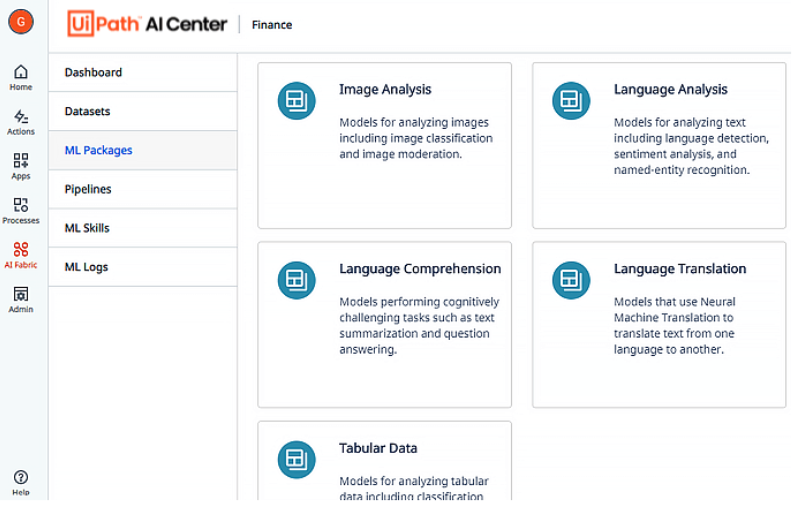Robotic Process Automation (RPA) Vendors are Enhancing their Platforms with Artificial Intelligence (AI) Capabilities
Leveraging AI with your RPA implementation will further enhance the return on investment (ROI) and bring better bot enabled decisions for your organization.

Robotic Process Automation (RPA) and Artificial Intelligence (AI) are both well-established capabilities.
RPA excels at automating a wide variety of predictable repetitive tasks, essentially it is a digital “robot” which emulates and integrates the actions of a human interacting within digital systems to execute a business process. Given this, RPA which enables the automation of the tasks of workers, has had a compelling story in technology. The most important reason being that the ROI, in general, has been substantial.
On the other hand, AI excels at recommending decisions when there is a level of uncertainty with the underlying information used to make decisions, and over time AI’s predictive capabilities improve with experience. AI is not programmed in the traditional sense, instead it learns from existing data and decisions. In many cases AI learns from the decisions of subject matter experts (SMEs) to their infer rules, and then AI makes decisions or predictions based upon these rules. The advantage of AI over SMEs is that AI can be embedded into your established RPA workflows, and therefore become automated with the capability to make thousands of decisions an hour or even on a real-time basis, whereas SMEs are typically too busy to be available and can not make decisions at these velocities.
However, until recently, augmenting your RPA solutions with AI required a complex and expensive one-off system integration effort, which was beyond the reach of many organizations.
RPA VENDORS PRE-INTEGRATE AI INTO THEIR PLATFORMS
RPA vendors such as UiPath, Automation Anywhere, and others have now pre-integrated AI sub-systems as part of the overall RPA platforms.
This includes AI capabilities which can process large amounts of structured and unstructured data through the use of Computer Vision, Natural Language Processing (NLP), fuzzy logic, and Machine Learning (ML).
In general, AI is complex, requires specialized analytic and technical talent and with the demand for these personnel being high it is difficult to recruit AI personnel and their compensation levels are high. This has been an impediment for traditional companies to fully pursue digital transformations with AI.
However, now that AI is pre-integrated into RPA platforms, highly compensated AI experts are not necessarily required to develop and implement AI successfully, as these are now out-of-the-box capabilities. Additionally, along with the pre-integrated AI capabilities, these RPA platforms also allow you to embed your own AI models into their platforms.
There is a second benefit to RPA with pre-integrated AI capabilities. Many AI projects are “proof of concept” deliverables that demonstrate the benefit of AI, but the vast majority of these “proof of concept” projects fail to become production deliverables due to the challenge of embedding AI within existing workflows. With AI pre-integrated into RPA platforms, it becomes substantially easier to roll out and achieve success with your AI initiatives, by embedding the AI into your existing workflows and processes using your existing RPA platform.
EXAMPLE HEALTHCARE PAYER USE CASE USING RPA AND AI
State Medicaid payer plans can benefit with RPA to automate many of their administrative tasks associated with new and existing members related to case management. These tasks are performed, typically by a large number of case management associates. An RPA solution can automate many of these tasks and therefore reduce the backlog of work and time required to insure that information is up to date for each member in the plan. 
Even more important, the primary goals for the case management organization is to improve the quality of care for their members, while concurrently insuring that plan dollars are used in the most cost-effective manner. Each new member or existing member who have started to have substantial recurring claims are assessed for placement into one of the plan’s intensive case management programs depending upon their conditions. However, typically the case management associates lack the requisite training and skills to make a reliable assessment and corresponding decision as to which members should be placed into a case management program. This case management assessment requires evaluating a large amount of data for each member, which is beyond the means of case management associates to accurately assess. This results in placing many members in case management who did not need to be in the programs while at the same time missing members who would benefit with improved quality of care from being in one of the case management programs.
Medicaid plans who implement AI process for member case management prediction into their existing RPA workflow processes, are able to place members more reliably into their case management programs up-front. The AI prediction model is developed using trained placements based upon prior recommendations from the most knowledgeable senior-level case management personnel.
The AI capability reduces member case assessment from a manual process which takes hours to an automated process embedded into existing case management workflows. More importantly, AI provides much better recommendations as to which members to place into case management than those submitted by the case management associates.
The net result is improved quality of care for the plan’s members, placing the right members into case management the first time, while concurrently doing this in a timelier and more cost-effective manner.
CALL TO ACTION
The benefits of AI within their RPA implementations are now attainable for most firms. Now that RPA vendors are integrating AI capabilities, the time, cost, and expertise to leverage the benefits of AI are straight-forward and no longer require specialized AI personnel and an expensive system integration effort.
Irrespective of whether or not you have already considered adding AI capabilities to your RPA solutions, now is the perfect time to jump in as it easier than ever to integrate and operationalize AI within your already established RPA workflows, and as a result provide your firm with the competitive and financial benefits that an integrated RPA and AI solution can deliver.
Resources:
https://www.uipath.com/product/rpa-ai-integration-with-ai-center



